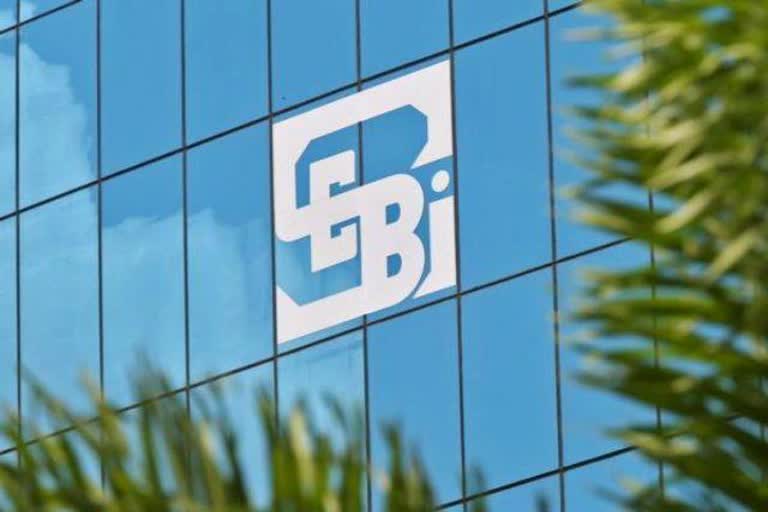Mumbai: Tightening its disclosure norms for listed companies, markets regulator SEBI on Wednesday asked them to report full facts of any loan default within 24 hours for any failure of repayment of principle and interest amount beyond 30 days.
The move will ensure better disclosure and transparency, SEBI chief Ajay Tyagi told reporters after the board meeting.
"The board has decided that in case of any default in repayment of principle and interest on loans from banks or financial institutions which continues beyond 30 days from the pre-agreed payment date, listed entities shall promptly, but not later than 24 hours from the 30th day, disclose the fact of such default," SEBI said.
The decision has been taken to address the gaps in the availability of information with respect to defaults, the regulator said.
This would be applicable from January 1, 2020.
There have been several instances of huge loan defaults by corporates, including in cases like Infrastructure Leasing & Financial Services Ltd (IL&FS). In many cases, the disclosure about loan default has been very late and share prices have fallen sharply.
"The objective of new default disclosure is to get more openness to help investors," Tyagi said.
Asked whether RBI agreed to the new norms, Tyagi said that a deputy governor of the central bank is on the board of SEBI and therefore they are also in agreement.
"One day default disclosure was not agreed to by the board. This scheme of 30 days is implementable," he said referring to an earlier proposal of making a loan default disclosure within a day of default.
Tyagi also said that the board had discussions on proxy advisory firms as well and will discuss more in the next meet.
Sending out a stern message, Tyagi also said that action will be taken against companies that do not disclose about whistleblower complaints in the garb of finding them as "not material".
"If companies are 'fooling' by disclosing information to boost sentiment, action will be taken," Tyagi said.
His reply was to a query on whether the regulator would take a hard look at cases of companies driving up sentiments through disclosures. There have been instances of firms from various sectors, including banks, making big claims amid falling share prices.
Read more: No proposal at present to waive penalty, interest on telco's licence fee dues: Prasad
SEBI to act against companies not disclosing whistleblower complaints
Sending out a stern message, Tyagi said that action will be taken against companies that do not disclose about whistleblower complaints in the garb of finding them as "not material".
"If companies are 'fooling' by disclosing information to boost sentiment, action will be taken," Tyagi told reporters after the regulator's board meeting here.
"If companies do not disclose a whistleblower complaint in the garb of finding it as 'not material', action will be taken," he said.
Business responsibility reports mandatory for top 1,000 listed companies
For better compliance with corporate governance norms, SEBI decided to make it mandatory for top 1,000 listed companies to prepare annual business responsibility report, covering their activities related to environment and stakeholder relationships. Presently, the business responsibility reports (BRs) are mandatory for top 500-listed entities based on market capitalisation on the BSE and NSE.
The key areas required to be reported by the entities include environment, social, governance and stakeholder relationships.
SEBI decides to reduce rights issue timeline to 31 days
SEBI has decided to reduce the overall time taken for rights issue to 31 days from the current 55, a move aimed at making the process more efficient.
Besides, the regulator has made ASBA (Applications Supported by Blocked Amount) facility as the mandatory mode of payment for all investors applying to shares on rights basis, SEBI said in a statement issued after its board meeting.
In addition, it has introduced dematerialised and trading of rights entitlements on stock exchanges.
Portfolio management scheme limit hiked to Rs 50 lakh, networth requirement to Rs 5 cr
With a view to keep retail investors away from portfolio management schemes (PMS), SEBI has decided to raise the minimum investment amount of clients for such schemes to Rs 50 lakh from the earlier Rs 25 lakh.
Besides, it has decided to increase the networth requirement of portfolio managers to Rs 5 crore from Rs 2 crore, Sebi Chairman Ajay Tyagi told reporters after the board meeting.
He further said the existing portfolio managers will have to meet the enhanced requirement within 36 months.
Mutual funds will join DHFL resolution process
SEBI Chairman Ajay Tyagi said mutual funds will join the resolution process of DHFL to be done under the insolvency law framework. Amid the crisis at DHFL, once a leading player in the housing finance space, the Reserve Bank of India (RBI) on Wednesday superseded the board of the company.
"Under the IBC, mutual funds are also considered as lenders and they will follow that rule. We have nothing to say on that," Sebi Chairman Ajay Tyagi told reporters here, without naming DHFL.



